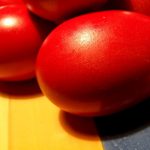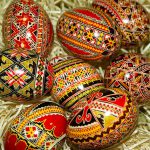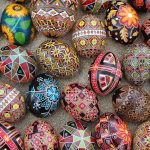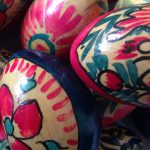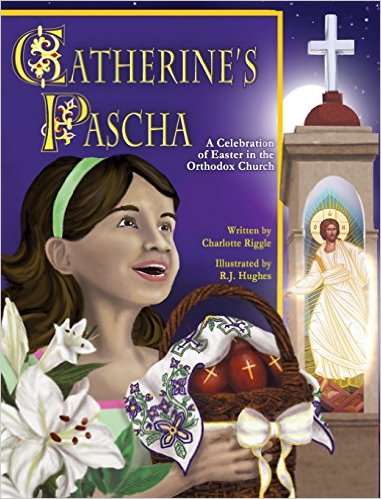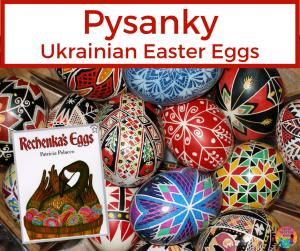Orthodox Easter Traditions
Orthodox Christians in Greece, Russia, Bulgaria, Ukraine, and other countries around the world celebrate Orthodox Easter or Pascha.
Church services, decorating eggs, playing games, and eating traditional foods are typical parts of the celebration.
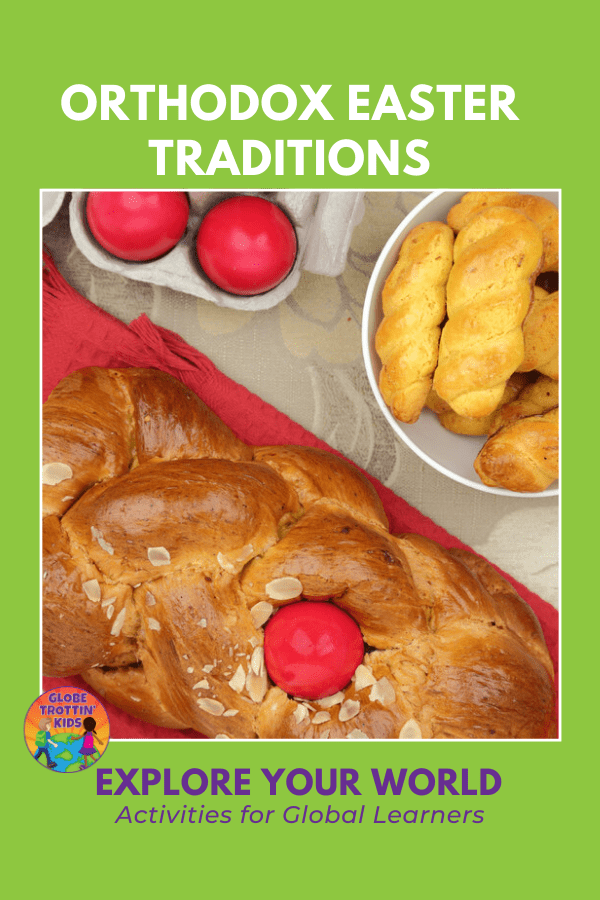
The Date
The Orthodox Church uses the Julian calendar for determining Easter (compared to Western churches using the Gregorian calendar), which usually results in Orthodox Easter falling later than Easter.
- 2020: April 19
- 2021: May 2
- 2022: April 24
- 2023: April 16
- 2024: May 5
The Eggs
Decorated eggs are an important part of the Orthodox Easter tradition. In Greece, the hard-boiled eggs are dyed a bright red.
Romanians paint hollowed-out eggs in traditional colors of yellow, red, and black – as well as a variety of other color combinations and patterns.
- Greece
- Romania
- Ukraine
- Russia
Ukrainian Easter eggs, pysanky, are beautifully decorated using a wax-resist method.
Russian Easter eggs made of wood are painted with traditional designs, churches, and other images on them.
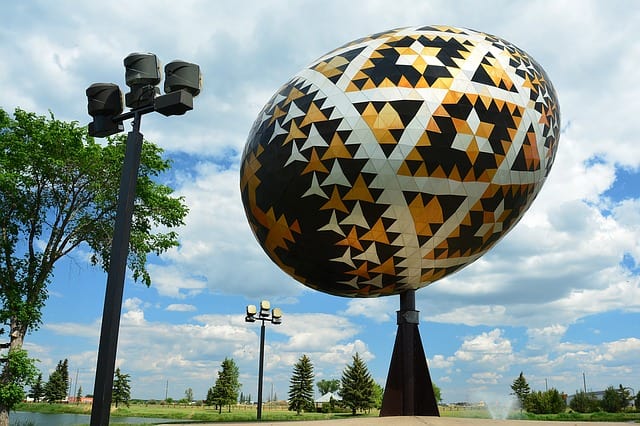
The Vegreville egg is a giant sculpture of a pysanka in Alberta, Canada.
Egg Games
People of all ages enjoy playing Easter egg games.
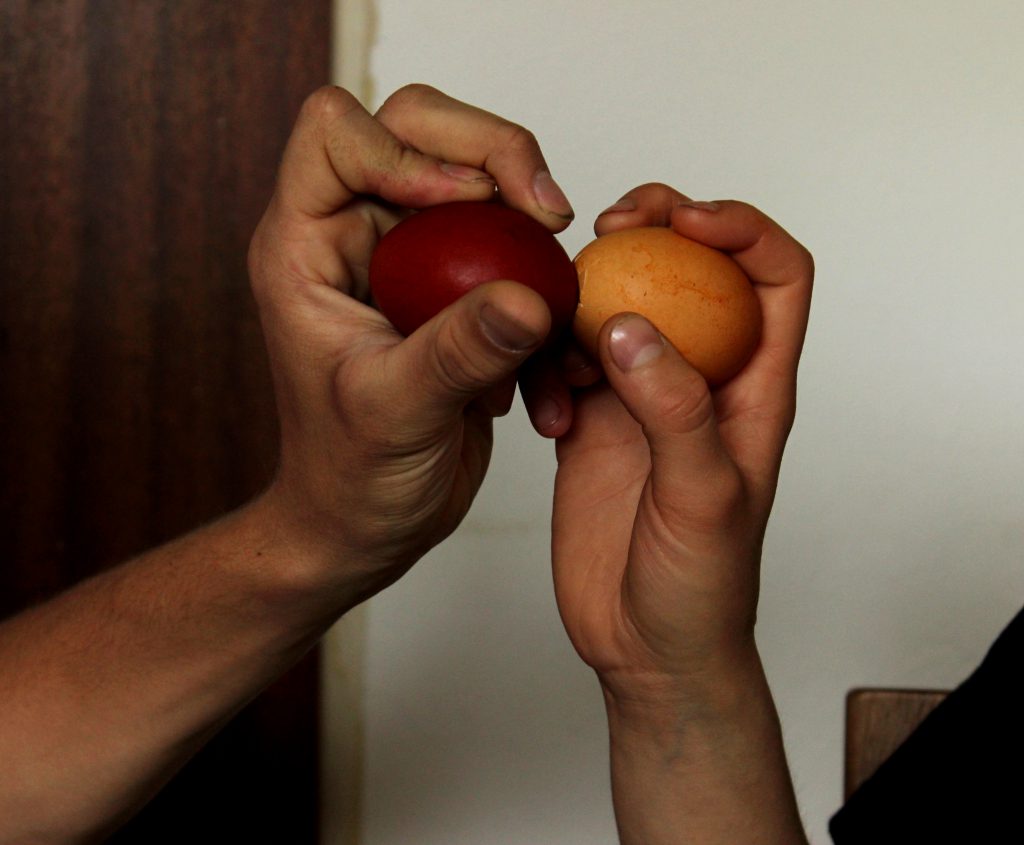
- Egg Cracking Competition – players take turns tapping the ends of their eggs. The person with the last un-cracked egg will have luck for the year.
- Easter Egg Roll – players roll their eggs down a hill and try to crack another player’s egg while keeping theirs intact.
The Feast
Family and friends gather to feast on traditional foods. Roasted lamb is one of the most popular meats served on Easter.
Egg-lemon chicken soup, roasted potatoes with lemon and oregano, and spinach cheese pies are other favorites at the table.
Easter bread featuring eggs is common across many cultures. Easter Bread Recipes Around the World
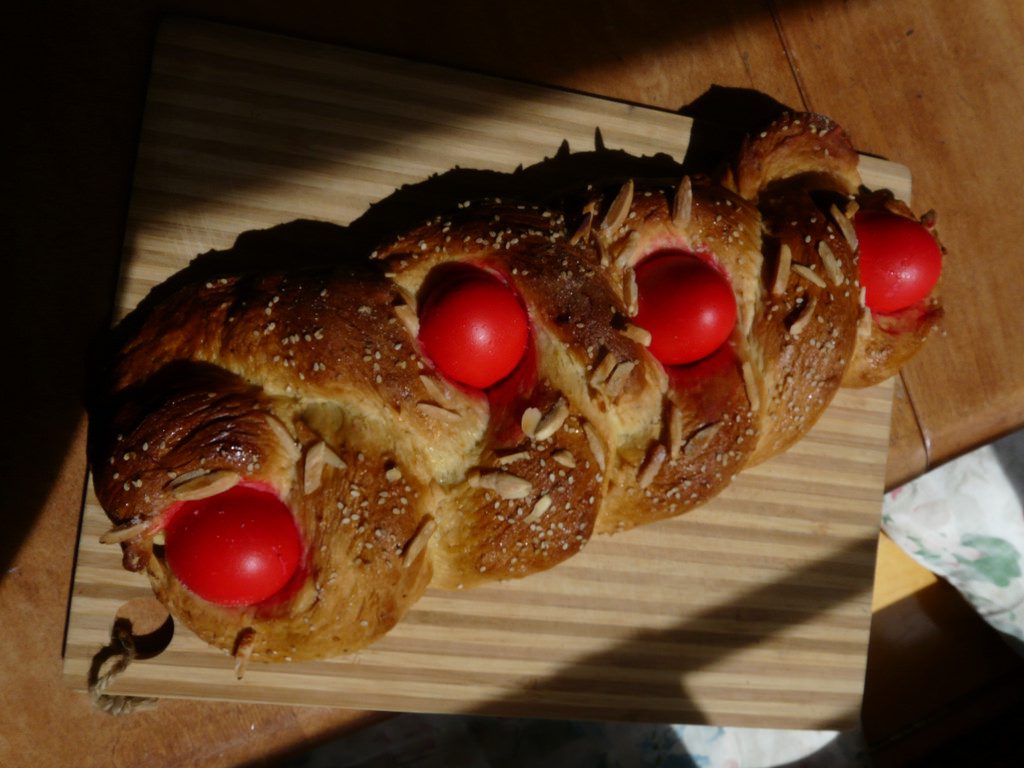
Tsoureki
Related Resources
Catherine’s Pascha by Charlotte Riggle is a wonderful picture book that shares the special traditions of an Orthodox Easter celebration through the eyes of a young girl.

